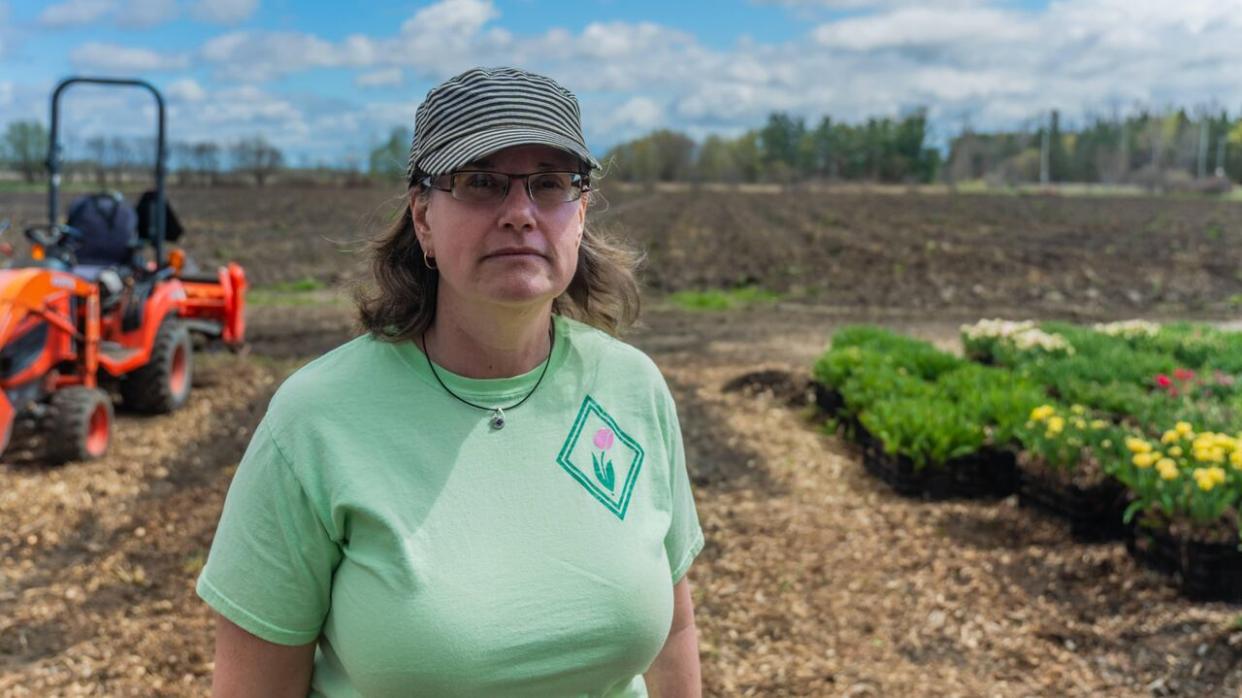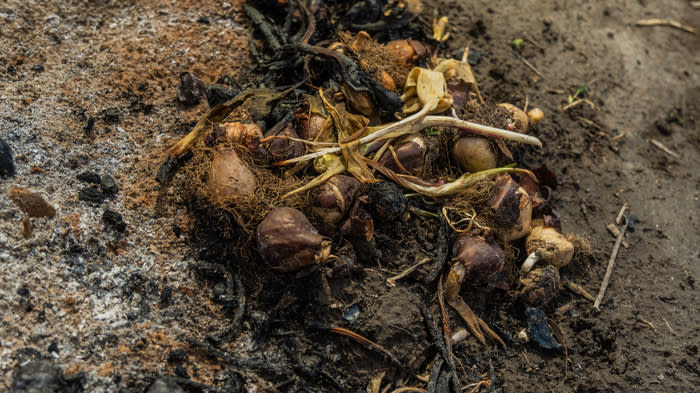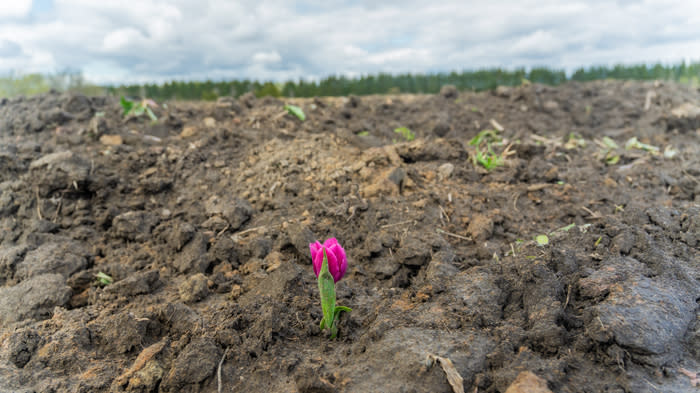Fungal disease ends tulip season for local farm

A local farm in Ottawa is calling it quits on its spring season after a fungal disease destroyed 500,000 tulips.
The disease, called tulip fire, is devastating for farmers as the spores remain in the soil for years and cause tulip leaves to wither, twist and appear scorched.
"Seeing the tractor turning the tulips over was heartbreaking," said Manja Bastian, the co-owner of Green Corners Farm, as she watched her tulip fields being ripped up.
Bastian and her husband Allan Groen bought the 13 acre farm in 2019 and previously supplied tulips to the Canadian Tulip Festival in Ottawa.
Bastian said the warm weather and dramatic temperature changes contributed to the fungus spreading.
"They're supposed to be snug and warm under a coat of snow," Bastian said.
"[The tulips] got really distressed [because] it got to –20 C. They can handle [the cold], but it weakens them so they couldn't fight off the fungus," Bastian said.

Bastian said a fungal infection cost her farm about $200,000. (Michel Aspirot/CBC)
At first, the owners thought only two thirds of the farm had been impacted, but quickly realized that it had spread over the entire farm.
Bastian and Groen said they're looking to rent another farm for the next tulip season to avoid infecting more bulbs.
Bastian estimates they lost about $200,000 in crop costs, as they have no crop insurance due to tulips being classified as a specialty crop. This amount doesn't take into account loss of revenue, labour costs nor the time and energy spent planting thousands of tulips, she said.

A singular tulip in a field infected by tulip fire, a fungal disease that remains in the soil for several years. (Michel Aspirot/CBC)
While the tulip season may be over, sunflower season has arrived.
Bastian said 40,000 sunflowers are being planted for the summer season along snapdragons, zinnias and 40 other flowers. The fungus thankfully doesn't affect any other flowers at their farm.
"Our tulips are finished, but we're really looking forward to a great sunflower season," Bastian said.


